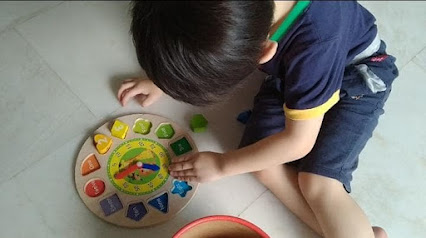Fostering Tea Session (Hock Lye & Li Li)
We started our fostering journey since 2017 and have fostered 3 children since then. I was 48 years old, my husband was 52 years old, and we have 4 adult children of our own. My second son and his wife, then fiancée, helped in various ways like playing and reading to Adam* (name has been changed to protect the child’s identity), our first foster child. They are the best form of support in our fostering journey. Whenever we brought Adam out together, people on the street would ask if he is my grandchild!
There are both memorable moments and challenges encountered as foster parents. For example, when our second foster child, Billy*, first came to us, he struggled with managing his emotions and attitudes would often change suddenly. Due to their background, some of the foster children may display such behaviours because they feel alone, and there is no one they can trust especially when living in a stranger’s home. There needs to be constant reassurance and love to mend the broken-hearted!
But with God’s grace, the consistent showering of love and being firm in discipline and explaining to him the rights and wrongs, it eventually helped to overcome the struggles that he faced and be his true self! After a few months of living together with us, Billy told me he liked my teaching and asked if I could forgive the things he had done wrong! My heart melted, and I told him that “For God so loved the world, He forgives! Of course, I will forgive!”.
For those who are thinking of being a foster parent, here are 6 tips for you to consider:
1. Space can always be created
2. Ensure communication with your family and foster child
3. Do not be too ambitious – let the child settle in his/her new home first
4. Look out for the child’s social and emotional behaviour rather than academic work/results
5. Lay down clear consequences of one’s action and be consistent in the teaching and guidance
6. Attend all mandatory training courses, including understanding special needs courses. They are helpful to learn methods and ways to help in handling behavioural issues and understanding children’s trauma/triggers.
*Names have been changed




